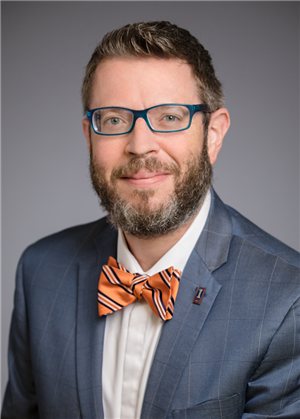Graduate Student Seminar
April 05, 2024
10:00 a.m. ET
Doherty Hall 2210
April 05, 2024
10:00 a.m. ET
Doherty Hall 2210
As the fundamental kinetic process for atomic motion in a material, diffusion controls materials processing for metals, semiconductors, ceramics, and nanoparticles; the operation of batteries and fuel cells; and degradation from corrosion and irradiation. The nano- or atomic-scale processes controlling diffusion are often thermally activated and driven by external forces; the understanding of thermally activated processes goes back to Arrhenius, Eyring, Polanyi, and Vineyard. However, in complex materials with multiple competing processes, diffusivity can deviate from Arrhenius behavior, and is difficult to connect individual processes to macroscale behavior. When written as the long-time limit of the mean-squared displacement, it requires long trajectories to converge to the true value, which can make direct simulation using kinetic Monte Carlo unattractive in some cases. This is especially true for complex materials with a variety of environments and transition rates, which can exhibit trapping and non-Arrhenius behavior of the diffusivity. An alternative to trajectories involves expressing the diffusivity with a variational principle, and numerically find the minimum. In addition, when we work with the variational form, new insights emerge. Using machine learning with a variational formula for diffusivity, we recast diffusion as a sum of individual contributions to diffusion--called "kinosons"--and compute their statistical distribution. We apply this to model a complex multicomponent alloy. Calculating kinosons is orders of magnitude more efficient than computing whole trajectories, and elucidates kinetic mechanisms for diffusion. In particular, we see sluggish diffusion for the fastest species change with temperature. The density of kinosons with temperature leads to new accurate analytic models for macroscale diffusivity. This combination of machine learning with diffusion theory promises insight into other complex materials, making it useful for a wide variety of new problems in mass transport.
 Trinkle received his Ph.D. in Physics from Ohio State University in 2003. Following his time as a National Research Council postdoctoral researcher at the Air Force Research Laboratory, he joined the faculty of the Department of Materials Science and Engineering at Univ. Illinois, Urbana-Champaign in 2006. He was a TMS Young Leader International Scholar in 2008, received the NSF/CAREER award in 2009, the Xerox Award for Faculty Research at Illinois in 2011, the AIME Robert Lansing Hardy Award in 2014, the TMS Brimacombe Medal in 2019, co-chaired the 2011 Physical Metallurgy Gordon Research conference, and became a Willett Faculty Scholar at Illinois in 2015, a Center for Advanced Study Associate and NCSA Faculty Fellow in 2017, and an Ivan Racheff Professor in 2021. His research focuses on computational methods for studying defects in materials at the atomic-scale using density-functional theory, and novel techniques to understand problems in mechanical behavior and transport. This has led to ab initio predictions of solid-solution softening in molybdenum, solute strengthening and softening in magnesium alloys, pipe diffusion of hydrogen in palladium, diffusion of oxygen in titanium and solutes in magnesium, among others.
Trinkle received his Ph.D. in Physics from Ohio State University in 2003. Following his time as a National Research Council postdoctoral researcher at the Air Force Research Laboratory, he joined the faculty of the Department of Materials Science and Engineering at Univ. Illinois, Urbana-Champaign in 2006. He was a TMS Young Leader International Scholar in 2008, received the NSF/CAREER award in 2009, the Xerox Award for Faculty Research at Illinois in 2011, the AIME Robert Lansing Hardy Award in 2014, the TMS Brimacombe Medal in 2019, co-chaired the 2011 Physical Metallurgy Gordon Research conference, and became a Willett Faculty Scholar at Illinois in 2015, a Center for Advanced Study Associate and NCSA Faculty Fellow in 2017, and an Ivan Racheff Professor in 2021. His research focuses on computational methods for studying defects in materials at the atomic-scale using density-functional theory, and novel techniques to understand problems in mechanical behavior and transport. This has led to ab initio predictions of solid-solution softening in molybdenum, solute strengthening and softening in magnesium alloys, pipe diffusion of hydrogen in palladium, diffusion of oxygen in titanium and solutes in magnesium, among others.
November 4 2025
7:00 AM ET
US locations
November 4 2025
9:00 AM ET
Materials Science and Engineering
M.S. Program Information Session
Join us online to learn more about becoming part of the graduate student community through our master's degree programs.
Virtual
November 5 2025
4:00 PM ET
Materials Science and Engineering
"What Materials Research Looks Like At Apple,” presented by Carolyn Duran
Doherty A303
November 7 2025
12:45 PM ET
Materials Science and Engineering
Adventures in additive manufacturing for space exploration, presented by Daniel Oropeza, University of California Santa Barbara
7500 Wean Hall
November 11 2025
11:00 AM ET
Materials Science and Engineering
"Behind the Scenes with an ACS Editor: Insights into Scholarly Publishing and Manuscript Preparation,” presented by Dr. Raymond Schaak
5201 Scott Hall
November 13 2025
4:30 PM - 6:30 PM ET
Roberts Engineering Hall, Singleton Room, 4th floor